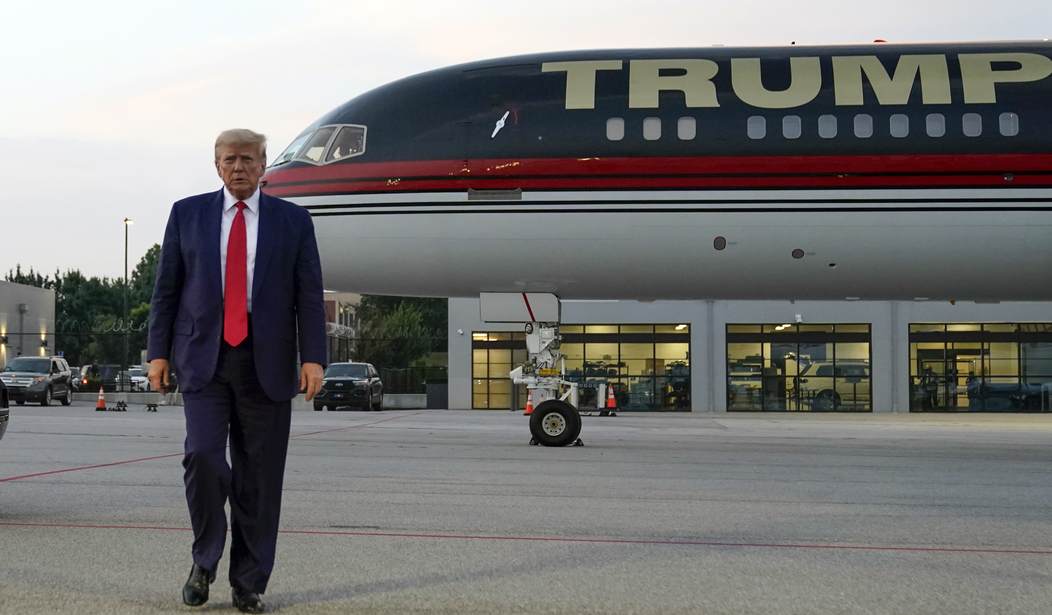Former President Donald Trump surrendered to the authorities in Fulton County, Georgia on Thursday. He is facing 13 felony counts related to his efforts to contest the outcome of the 2020 presidential election. This is his fourth indictment this year.
After being booked, Trump gave remarks to the press about the case. He argued that "If you challenge an election, you should be able to challenge an election" and highlighted how Hillary Clinton and Stacey Abrams did the same when they lost their races.
BREAKING: Former President Donald Trump gives statement after being arrested on charges of illegally trying to overturn the 2020 presidential election.
— Jeff Charles, An Awful Pundit🏴 (@jeffcharlesjr) August 25, 2023
"You should be able to challenge an election. I thought the election was a rigged election, a stolen election." pic.twitter.com/DetUIKiCaD
The charges include racketeering, solicitation of violation of oath by a public official, and multiple fraud and false statement counts. The district attorney's office is also charging 18 other individuals who worked with Trump to challenge the results of the election. If Trump is convicted on all counts, he could be facing over 75 years in prison if he receives the maximum sentence.
The indictment also alleges a scheme involving "fake electors" to stop Congress from certifying the election results and pressuring state officials to reject the outcome.
Trump was granted a $200,000 bond. As a condition of his bond agreement, he is prohibited from intimidating witnesses or co-defendants. This could include statements made directly or indirectly to these individuals and even posts made on social media.
The former president was not immediately arraigned after being booked as he was in previous indictments. His mugshot was taken and later circulated on social media. Fulton County District Attorney Fani Willis scheduled all 19 defendants to be arraigned on September 5. However, it is not yet certain whether each of these individuals will be able to be physically present for the proceedings. The president could appear virtually.
The district attorney proposed March 4, 2024, to start the trial. But it could be delayed further:
Trump is known for using the courts to draw out cases, and the prosecution could be further slowed by novel legal questions stemming from the unprecedented nature of the case.
Legal experts said a delay could benefit the former president, the front-runner in the race for the Republican nomination for the Nov. 5, 2024, presidential election.
There is also the possibility that Trump could try to move his case to federal court. His former chief of staff, Mark Meadows, is attempting the same. If successful, this could benefit the former president:
Moving the case to federal court could benefit Trump by making it more likely he could be granted immunity if the court found he was acting within the scope of his duties as president when he tried to overturn the 2020 election—and also make it less likely that the trial would be televised—and while legal experts have been skeptical he’ll be able to move it over, the effort could succeed in further delaying a trial anyway.
Another option for the former president is possibly moving the venue to another part of the state. He could argue that the jury pool in Fulton County would be biased against him, given that it went 73 percent for Biden in the 2020 election.
Another subplot to keep an eye on is the disposition of Trump's co-defendants. Some of these individuals could possibly cooperate with prosecutors against the former president if it means they can gain leniency.
If Trump is convicted, he will almost certainly appeal the verdict, which could stretch the proceedings out even further.












Join the conversation as a VIP Member